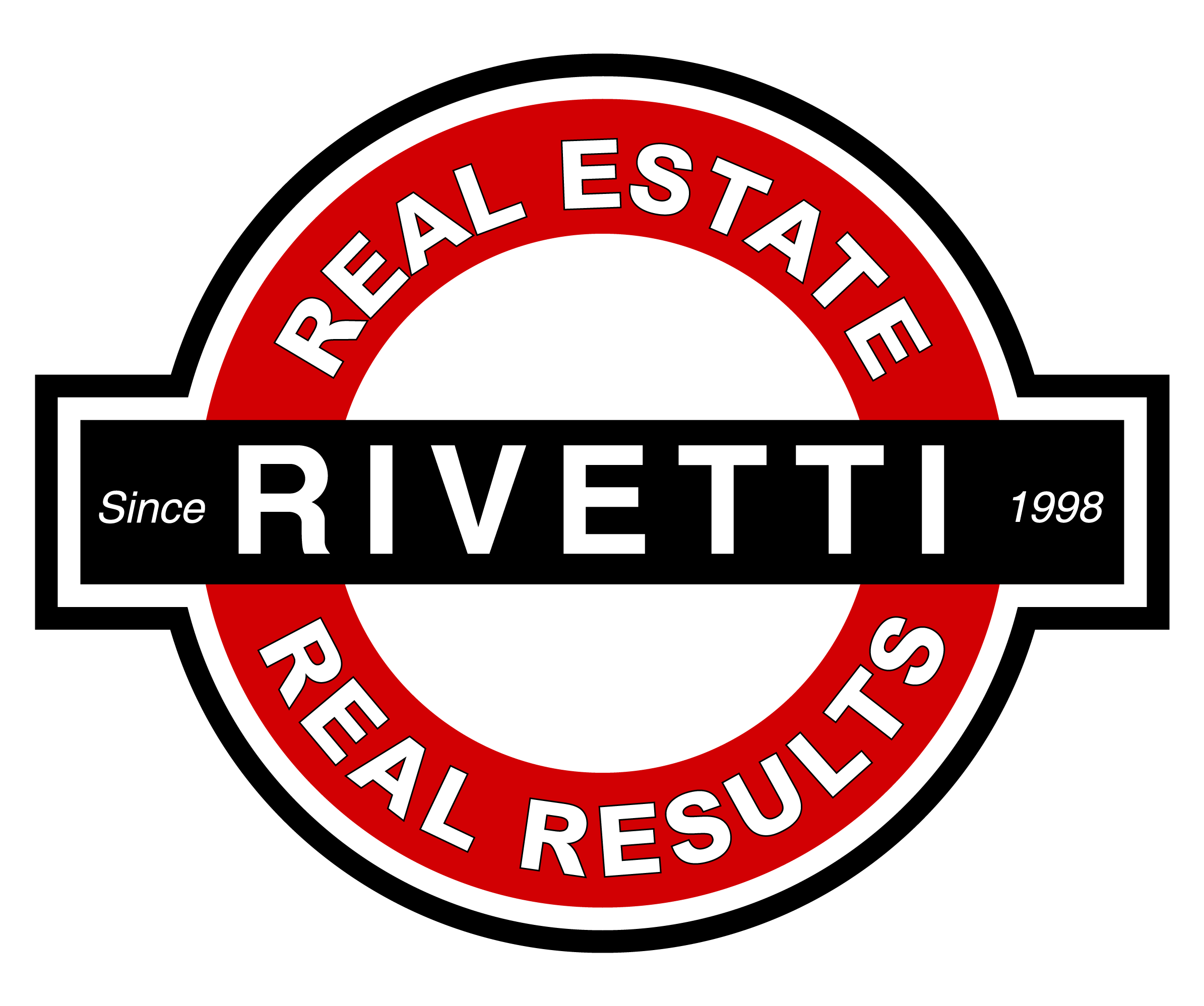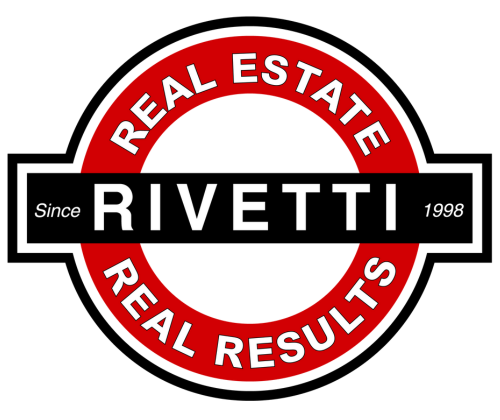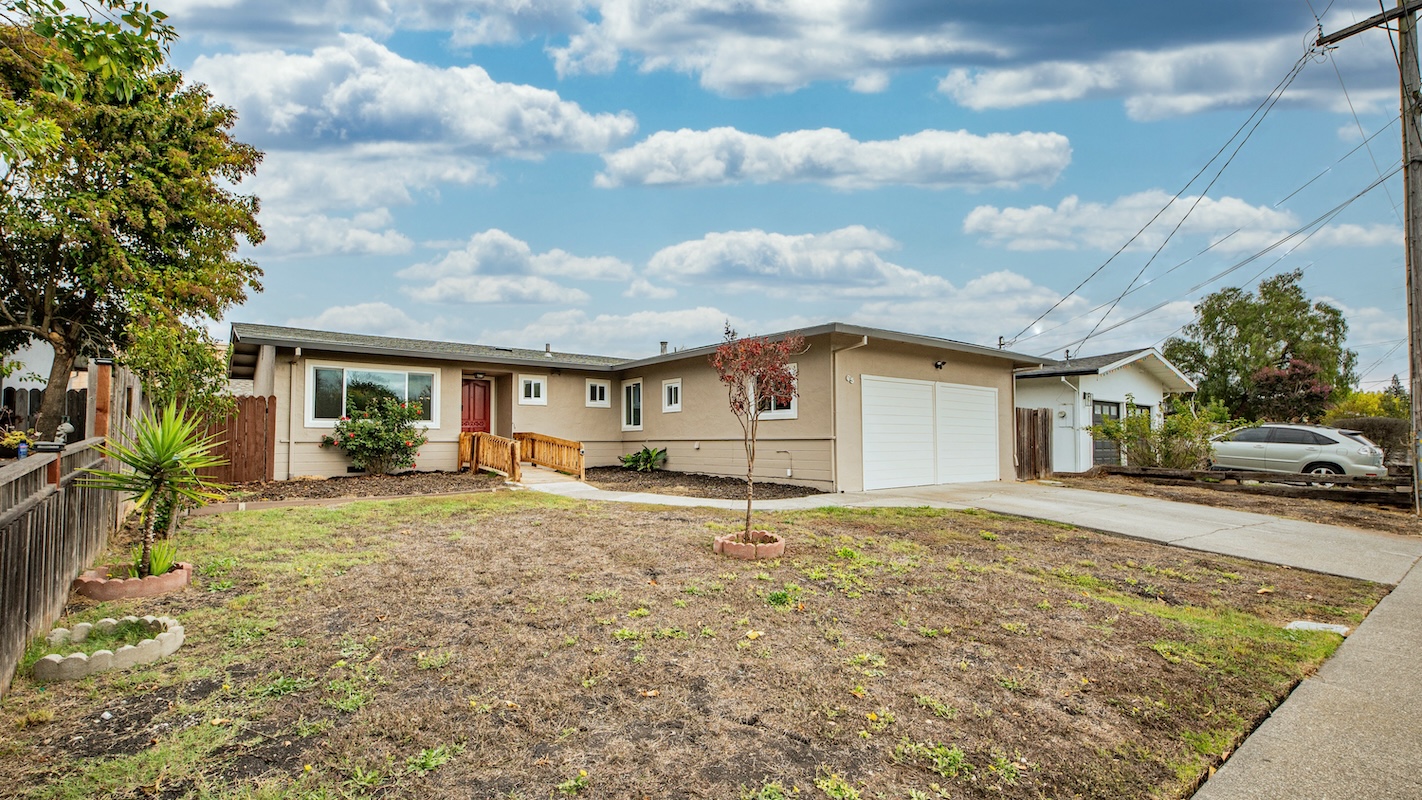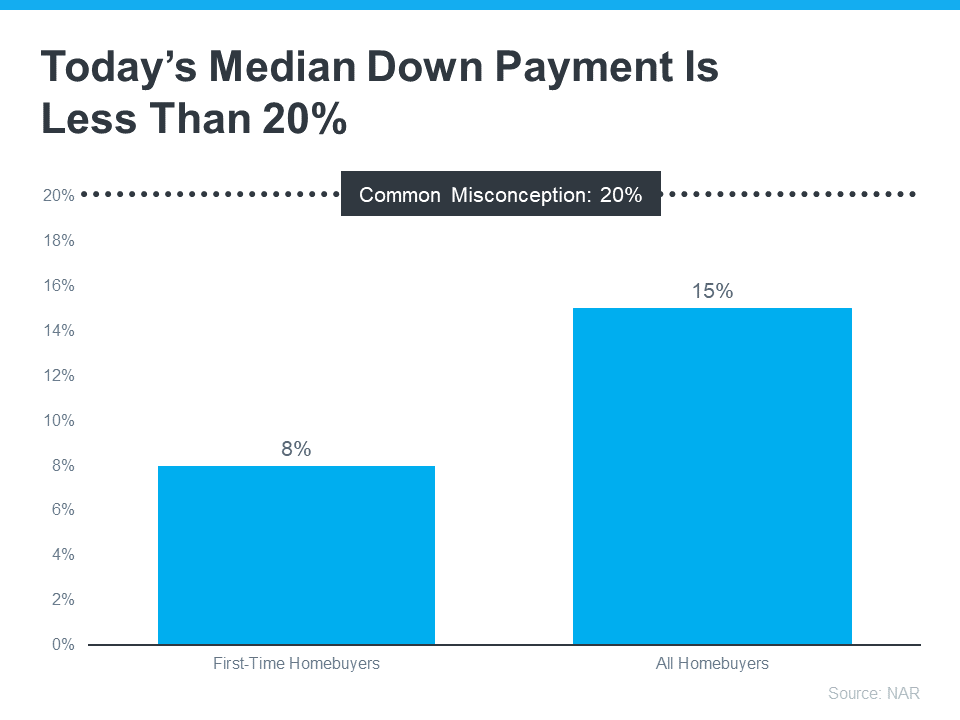HAPPY VALENTINES DAY

Sending all our clients & friends a Happy Valentines! Wishing you all much love & happiness!



Timo Rivetti has been serving his clients with a highly individualized service tailored to specific needs and requirements since 1998. Unparalleled knowledge and expertise in the region is invaluable when it comes to buying and selling real estate. Hiring an agent who knows the area inside out makes all the difference in a competitive market. Timo and his team of experienced professionals work with each and every client to find and secure the perfect property at the best price, with all of the required amenities in the right neighborhood. When it’s time to make a move, call Timo.

What My Clients Have To Say
WHY NAVIGATE REAL ESTATE
If you live here already, you know how blessed we are. If you're considering living or investing here, you've probably experienced some of the area's extraordinary possibilities: country settings and small-town communities; enthralling agricultural beauty, and true farm to fork lifestyle, If Northern California is your real estate destination, you've arrived at the right spot. Whether you're looking to buy your first home - or to sell an estate - expect nothing less from us than a Meritage blend of real estate expertise, professional service, creativity, and a passion for achieving your goals.

LAUNCHING INTO 2024 WITH NAVIGATE REAL ESTATE
It certainly feels good to start the new year with new intentions and goals. The Rivetti Real Estate Team is blazing a fresh and exciting new trail with Navigate RE this January.
Bay Area based Navigate RE brings innovative technology to the real estate industry, transforming the business of buying and selling property by streamlining and simplifying the transaction and marketing process for clients and agents alike.
“What we love about this company is an emphasis on integrity,energy, hard work and service within our Bay Area communities,” says Timo.“Navigate RE is a refreshing change from working with corporate real estate companies that don’t have nearly the same level of passion for serving people at all levels of a property transaction.”

Founding partners, Don McDonald and Donovan Schemke are responsible for over$4.5 Billion in sales over the last 20 years and are consistently ranked in the top 5 in all of California. Their philosophy, Better Companies Make Better Communities matches TheRivetti Team’s principles as we continue to serve, connect and grow, independently.“Community is a top priority for us,” says Timo. “We are dedicated to continually investing in Petaluma relationships and quality of life for our clients and associates.Partnering with Navigate RE this new year provides the technical and professional support to maintain and build upon our legacy real estate business in Petaluma and surrounding areas. This post-holiday season, we’re off to a great start in the new year with multiple listings in the pipeline,” says Timo. Last year’s high interest rates slowed the number of properties coming to the market, but already, in early January, we’re seeing a significant increase in market activity as sellers prepare to list.
Timo and Renee have been operating mobile offices while plans are underway to remodel their downtown location. “It’s important for us to have a central office in thehub of downtown,” says Timo. “We value and enjoy face to face meetings,communication and pop-in visits from so many of our long term and more recent clients.” “We look forward to opening our doors and welcoming everyone with a celebratory gathering as soon as renovations are complete,” says Timo. “Until then,we’re out and about holding open homes on new listings and checking out properties coming soon. We’d love to hear from you, so don’t hesitate to get in touch.”



Timo Rivetti has been serving his clients with a highly individualized service tailored to specific needs and requirements since 1998. Unparalleled knowledge and expertise in the region is invaluable when it comes to buying and selling real estate. Hiring an agent who knows the area inside out makes all the difference in a competitive market. Timo and his team of experienced professionals work with each and every client to find and secure the perfect property at the best price, with all of the required amenities in the right neighborhood. When it’s time to make a move, call Timo.

What My Clients Have To Say
WHY NAVIGATE REAL ESTATE
If you live here already, you know how blessed we are. If you're considering living or investing here, you've probably experienced some of the area's extraordinary possibilities: country settings and small-town communities; enthralling agricultural beauty, and true farm to fork lifestyle, If Northern California is your real estate destination, you've arrived at the right spot. Whether you're looking to buy your first home - or to sell an estate - expect nothing less from us than a Meritage blend of real estate expertise, professional service, creativity, and a passion for achieving your goals.
MARKET PREDICTIONS FOR 2024

Lower mortgage rates are widely anticipated to release a surge in pent-up demand for homes. Average fixed 30-year mortgage rates, peaking at 7.8% last October,have fallen by more than 100 basis points and early indications point to the 2024 housing market slowly unfreezing.
“Concerned homeowners who have been thinking of selling have largely delayed listing their homes until they are able to secure a more favorable interest rate on anew loan for their replacement property,” Timo says. “But there have been manywho need to sell or are able to sell for various reasons and those properties have kept the market tight but fairly buoyant in the Petaluma area over the past year.”
Timo expects to see more properties on the market in 2024 as the mortgage rates decline closer to 6%. There is an assumption that new mortgages are more likely to be refinanced within a few years as rates fall, even though rates dropping below 6%might not reasonably happen until sometime in 2025.
“The supply lull is not likely to go away in the Petaluma area this year as demand by far outstrips home availability. This puts sellers in a good position in 2024 and specific buyers, who must be serious to be in the market, are still hungry to secure the right home.”
Whereas Petaluma’s average home value is currently $884,924, up 2% over the previous year, Sonoma County’s Median Sold Price in December 2023 was$798,620, representing a 1.2% increase over 2022. The average county wide saletime in December last year was just 19 days, compared to 34 days in December 2022. Homes sell faster in Petaluma, averaging just 16 days, currently.
The average home in West Petaluma is valued at $1,038,538 this new year. That represents a 1.9% increase over the previous year.
“Waiting for home prices to drop in Petaluma does not appear to be a wise strategy,” says Timo. Compared to home prices in neighboring Marin County,Petaluma prices are extremely competitive. “There’s only so many pieces of the pie when it comes to securing a home in Petaluma,” says Timo. If you or someone you know would like to buy or sell in the area in 2024, the Rivetti Team is ready to launch into action.



Timo Rivetti has been serving his clients with a highly individualized service tailored to specific needs and requirements since 1998. Unparalleled knowledge and expertise in the region is invaluable when it comes to buying and selling real estate. Hiring an agent who knows the area inside out makes all the difference in a competitive market. Timo and his team of experienced professionals work with each and every client to find and secure the perfect property at the best price, with all of the required amenities in the right neighborhood. When it’s time to make a move, call Timo.

What My Clients Have To Say
WHY NAVIGATE REAL ESTATE
If you live here already, you know how blessed we are. If you're considering living or investing here, you've probably experienced some of the area's extraordinary possibilities: country settings and small-town communities; enthralling agricultural beauty, and true farm to fork lifestyle, If Northern California is your real estate destination, you've arrived at the right spot. Whether you're looking to buy your first home - or to sell an estate - expect nothing less from us than a Meritage blend of real estate expertise, professional service, creativity, and a passion for achieving your goals.
QUIET LUXURY ON TREND FOR 2024 INTERIOR DESIGN

Designers predict an emphasis on classic investment pieces to build a room around in 2024. According to Vogue Interiors, thinkwarm, dark woods, luxurious soft textures and traditionally shaped furniture.
Interior styles may come and go, but it doesn’t take celebrity status to afford the look. Think about re-upholstering that comfy, old sofa, as rich brown and cherry red hues make a comeback.
Out with the fake fur throws and in with textured fabrics such as corduroy,mohair and velvet, tone-on-tone, latte colors and buttery yellows creating living spaces with identity and personality. Dark wood paneled walls are in,creating warmth and coziness. Mix it up with traditional and modern furniture for an eclectic look including pieces you can recycle, re-purpose or even revamp with fresh new paint color or updated fabric.
Dust off grandma’s China and use it this year. Also, embrace the artisan, with locally made one-of-a-kind paintings and pottery and recycled artifacts. That’s easy to do in the Petaluma area. And don’t hesitate to frame the grandkids’ artwork! Ultimately, if you’re buying new furniture, select sustainable items that will last you a lifetime.



Timo Rivetti has been serving his clients with a highly individualized service tailored to specific needs and requirements since 1998. Unparalleled knowledge and expertise in the region is invaluable when it comes to buying and selling real estate. Hiring an agent who knows the area inside out makes all the difference in a competitive market. Timo and his team of experienced professionals work with each and every client to find and secure the perfect property at the best price, with all of the required amenities in the right neighborhood. When it’s time to make a move, call Timo.

What My Clients Have To Say
WHY NAVIGATE REAL ESTATE
If you live here already, you know how blessed we are. If you're considering living or investing here, you've probably experienced some of the area's extraordinary possibilities: country settings and small-town communities; enthralling agricultural beauty, and true farm to fork lifestyle, If Northern California is your real estate destination, you've arrived at the right spot. Whether you're looking to buy your first home - or to sell an estate - expect nothing less from us than a Meritage blend of real estate expertise, professional service, creativity, and a passion for achieving your goals.
4 Tips To Make Your Strongest Offer on a Home

Are you thinking about buying a home soon? If so, you should know today’s market is competitive in many areas because the number of homes for sale is still low – and that’s leading to multiple-offer scenarios. And moving into the peak homebuying season this spring, this is only expected to ramp up more.
Remember these four tips to make your best offer.
1. Partner with a Real Estate Agent
Rely on a real estate agent who can support your goals. As PODS notes:
“Making an offer on a home without an agent is certainly possible, but having a pro by your side gives you a massive advantage in figuring out what to offer on a house.”
Agents are local market experts. They know what’s worked for other buyers in your area and what sellers may be looking for. That advice can be game changing when you’re deciding what offer to bring to the table.
2. Understand Your Budget
Knowing your numbers is even more important right now. The best way to understand your budget is to work with a lender so you can get pre-approved for a home loan. Doing so helps you be more financially confident and shows sellers you’re serious. That gives you a competitive edge. As Investopedia says:
“. . . sellers have an advantage because of intense buyer demand and a limited number of homes for sale; they may be less likely to consider offers without pre-approval letters.”
3. Make a Strong, but Fair Offer
It’s only natural to want the best deal you can get on a home, especially when affordability is tight. However, submitting an offer that’s too low does have some risks. You don’t want to make an offer that’ll be tossed out as soon as it’s received just to see if it sticks. As Realtor.com explains:
“. . . an offer price that’s significantly lower than the listing price, is often rejected by sellers who feel insulted . . . Most listing agents try to get their sellers to at least enter negotiations with buyers, to counteroffer with a number a little closer to the list price. However, if a seller is offended by a buyer or isn’t taking the buyer seriously, there’s not much you, or the real estate agent, can do.”
The expertise your agent brings to this part of the process will help you stay competitive and find a price that’s fair to you and the seller.
4. Trust Your Agent During Negotiations
After you submit your offer, the seller may decide to counter it. When negotiating, it's smart to understand what matters to the seller. Once you do, being as flexible as you can on things like moving dates or the condition of the house can make your offer more attractive.
Your real estate agent is your partner in navigating these details. Trust them to lead you through negotiations and help you figure out the best plan. As an article from the National Association of Realtors (NAR) explains:
“There are many factors up for discussion in any real estate transaction—from price to repairs to possession date. A real estate professional who’s representing you will look at the transaction from your perspective, helping you negotiate a purchase agreement that meets your needs . . .”
Bottom Line
In today's competitive market, let’s work together to find you a home you love and craft a strong offer that stands out.

534 Jade St, Petaluma, CA 94952
MLS# 321024419 2+ bedrooms 2.5 bathrooms 1,907± square feet Built in 2017 Premium end-unit lot […]
Read More146 Shelina Vista Ln, Petaluma, CA 94952
MLS# 325030184 Single-level estate Nearly 3 private acres 3,606 sq ft home Five bedrooms total […]
Read More563 Jefferson St
2Bedrooms | 2 Baths | +/- 20 Acres $2,500,000
Read More

Timo Rivetti has been serving his clients with a highly individualized service tailored to specific needs and requirements since 1998. Unparalleled knowledge and expertise in the region is invaluable when it comes to buying and selling real estate. Hiring an agent who knows the area inside out makes all the difference in a competitive market. Timo and his team of experienced professionals work with each and every client to find and secure the perfect property at the best price, with all of the required amenities in the right neighborhood. When it’s time to make a move, call Timo.

What My Clients Have To Say
WHY NAVIGATE REAL ESTATE
If you live here already, you know how blessed we are. If you're considering living or investing here, you've probably experienced some of the area's extraordinary possibilities: country settings and small-town communities; enthralling agricultural beauty, and true farm to fork lifestyle, If Northern California is your real estate destination, you've arrived at the right spot. Whether you're looking to buy your first home - or to sell an estate - expect nothing less from us than a Meritage blend of real estate expertise, professional service, creativity, and a passion for achieving your goals.
Finding Your Perfect Home in a Fixer Upper

If you’re trying to buy a home and are having a hard time finding one you can afford, it may be time to consider a fixer-upper. That’s a house that needs a little elbow grease or some updates, but has good bones. Fixer-uppers can be a really great option if you’re looking to break into the housing market or want to stretch your budget further. According to NerdWallet:
“Buying a fixer-upper can provide a path to homeownership for first-time home buyers or a way for repeat buyers to afford a larger home or a better neighborhood. With the relatively low inventory of homes for sale these days, a move-in ready home can be hard to find, especially if you’re on a budget.”
Basically, since the number of homes for sale is still so low, if you’re only willing to tour homes that have all your dream features, you may be cutting down your options too much and making it harder on yourself than necessary. It may be time to cast a wider net.
Sometimes the perfect home is the one you perfect after buying it.
Here’s some information that can help you pinpoint what you truly need so you can be strategic in your home search. First, make a list of all the features you want in a home. From there, work to break those features into categories like this:
- Must-Haves - If a house doesn’t have these features, it won’t work for you and your lifestyle.
- Nice-To-Haves - These are features you’d love to have but can live without. Nice-to-haves aren’t dealbreakers, but if you find a home that hits all the must-haves and some of these, it’s a contender.
- Dream State - This is where you can really think big. Again, these aren’t features you’ll need, but if you find a home in your budget that has all the must-haves, most of the nice-to-haves, and any of these, it’s a clear winner.
Once you’ve sorted your list in a way that works for you, share it with your real estate agent. They’ll help you find homes that deliver on your top needs right now and have the potential to be your dream home with a little bit of sweat equity. Lean on their expertise as you think through what’s possible, what features are easy to change or add, and how to make it happen. According to Progressive:
“Many real estate agents specialize in finding fixer-uppers and have a network of inspectors, contractors, electricians, and the like.”
Your agent can also offer advice on which upgrades and renovations will set you up to get the greatest return on your investment if you ever decide to sell down the line.
Bottom Line
If you haven’t found a home you love that’s in your budget, it may be worth thinking through all your options, including fixer-uppers. Sometimes the perfect home for you is the one you perfect after buying it. To see what’s available in our area, let’s connect.

534 Jade St, Petaluma, CA 94952
MLS# 321024419 2+ bedrooms 2.5 bathrooms 1,907± square feet Built in 2017 Premium end-unit lot […]
Read More146 Shelina Vista Ln, Petaluma, CA 94952
MLS# 325030184 Single-level estate Nearly 3 private acres 3,606 sq ft home Five bedrooms total […]
Read More563 Jefferson St
2Bedrooms | 2 Baths | +/- 20 Acres $2,500,000
Read More1713 Avila Ranch Dr, Petaluma, CA 94954
RESULTS MATTER! See below for this home’s story↴ With The Rivetti real Estate Team and […]
Read More

Timo Rivetti has been serving his clients with a highly individualized service tailored to specific needs and requirements since 1998. Unparalleled knowledge and expertise in the region is invaluable when it comes to buying and selling real estate. Hiring an agent who knows the area inside out makes all the difference in a competitive market. Timo and his team of experienced professionals work with each and every client to find and secure the perfect property at the best price, with all of the required amenities in the right neighborhood. When it’s time to make a move, call Timo.

What My Clients Have To Say
WHY NAVIGATE REAL ESTATE
If you live here already, you know how blessed we are. If you're considering living or investing here, you've probably experienced some of the area's extraordinary possibilities: country settings and small-town communities; enthralling agricultural beauty, and true farm to fork lifestyle, If Northern California is your real estate destination, you've arrived at the right spot. Whether you're looking to buy your first home - or to sell an estate - expect nothing less from us than a Meritage blend of real estate expertise, professional service, creativity, and a passion for achieving your goals.
What To Know About Credit Scores Before Buying a Home

If you want to buy a home, you should know your credit score is a critical piece of the puzzle when it comes to qualifying for a mortgage. Lenders review your credit to see if you typically make payments on time, pay back debts, and more. Your credit score can also help determine your mortgage rate. An article from US Bank explains:
“A credit score isn’t the only deciding factor on your mortgage application, but it’s a significant one. So, when you’re house shopping, it’s important to know where your credit stands and how to use it to get the best mortgage rate possible.”
That means your credit score may feel even more important to your homebuying plans right now since mortgage rates are a key factor in affordability. According to the Federal Reserve Bank of New York, the median credit score in the U.S. for those taking out a mortgage is 770. But that doesn’t mean your credit score has to be perfect. The same article from US Bank explains:
“Your credit score (commonly called a FICO Score) can range from 300 at the low end to 850 at the high end. A score of 740 or above is generally considered very good, but you don’t need that score or above to buy a home.”
Working with a trusted lender is the best way to get more information on how your credit score could factor into your home loan and the mortgage rate you’re able to get. As FICO says:
“While many lenders use credit scores like FICO Scores to help them make lending decisions, each lender has its own strategy, including the level of risk it finds acceptable. There is no single “cutoff score” used by all lenders and there are many additional factors that lenders may use to determine your actual interest rates.”
If you’re looking for ways to improve your score, Experian highlights some things you may want to focus on:
- Your Payment History: Late payments can have a negative impact by dropping your score. Focus on making payments on time and paying any existing late charges quickly.
- Your Debt Amount (relative to your credit limits): When it comes to your available credit amount, the less you’re using, the better. Focus on keeping this number as low as possible.
- Credit Applications: If you’re looking to buy something, don’t apply for additional credit. When you apply for new credit, it could result in a hard inquiry on your credit that drops your score.
Bottom Line
Finding ways to make your credit score better could help you get a lower mortgage rate. If you want to learn more, talk to a trusted lender.

534 Jade St, Petaluma, CA 94952
MLS# 321024419 2+ bedrooms 2.5 bathrooms 1,907± square feet Built in 2017 Premium end-unit lot […]
Read More146 Shelina Vista Ln, Petaluma, CA 94952
MLS# 325030184 Single-level estate Nearly 3 private acres 3,606 sq ft home Five bedrooms total […]
Read More563 Jefferson St
2Bedrooms | 2 Baths | +/- 20 Acres $2,500,000
Read More

Timo Rivetti has been serving his clients with a highly individualized service tailored to specific needs and requirements since 1998. Unparalleled knowledge and expertise in the region is invaluable when it comes to buying and selling real estate. Hiring an agent who knows the area inside out makes all the difference in a competitive market. Timo and his team of experienced professionals work with each and every client to find and secure the perfect property at the best price, with all of the required amenities in the right neighborhood. When it’s time to make a move, call Timo.

What My Clients Have To Say
WHY NAVIGATE REAL ESTATE
If you live here already, you know how blessed we are. If you're considering living or investing here, you've probably experienced some of the area's extraordinary possibilities: country settings and small-town communities; enthralling agricultural beauty, and true farm to fork lifestyle, If Northern California is your real estate destination, you've arrived at the right spot. Whether you're looking to buy your first home - or to sell an estate - expect nothing less from us than a Meritage blend of real estate expertise, professional service, creativity, and a passion for achieving your goals.
The Truth About Down Payments

If you’re planning to buy your first home, saving up for all the costs involved can feel daunting, especially when it comes to the down payment. That might be because you’ve heard you need to save 20% of the home’s price to put down. Well, that isn’t necessarily the case.
Unless specified by your loan type or lender, it’s typically not required to put 20% down. That means you could be closer to your homebuying dream than you realize.
As The Mortgage Reports says:
“Although putting down 20% to avoid mortgage insurance is wise if affordable, it’s a myth that this is always necessary. In fact, most people opt for a much lower down payment.”
According to the National Association of Realtors (NAR), the median down payment hasn’t been over 20% since 2005. In fact, for all homebuyers today it’s only 15%. And it’s even lower for first-time homebuyers at just 8% (see graph below):
The big takeaway? You may not need to save as much as you originally thought.
Learn About Resources That Can Help You Toward Your Goal
According to Down Payment Resource, there are also over 2,000 homebuyer assistance programs in the U.S., and many of them are intended to help with down payments.
Plus, there are loan options that can help too. For example, FHA loans offer down payments as low as 3.5%, while VA and USDA loans have no down payment requirements for qualified applicants.
With so many resources available to help with your down payment, the best way to find what you qualify for is by consulting with your loan officer or broker. They know about local grants and loan programs that may help you out.
Don’t let the misconception that you have to have 20% saved up hold you back. If you’re ready to become a homeowner, lean on the professionals to find resources that can help you make your dreams a reality. If you put your plans on hold until you’ve saved up 20%, it may actually cost you in the long run. According to U.S. Bank:
“. . . there are plenty of reasons why it might not be possible. For some, waiting to save up 20% for a down payment may “cost” too much time. While you’re saving for your down payment and paying rent, the price of your future home may go up.”
Home prices are expected to keep appreciating over the next 5 years – meaning your future home will likely go up in price the longer you wait. If you’re able to use these resources to buy now, that future price growth will help you build equity, rather than cost you more.
Bottom Line
Keep in mind that you don't always need a 20% down payment to buy a home. If you're looking to make a move this year, let’s connect to start the conversation about your homebuying goals.

534 Jade St, Petaluma, CA 94952
MLS# 321024419 2+ bedrooms 2.5 bathrooms 1,907± square feet Built in 2017 Premium end-unit lot […]
Read More146 Shelina Vista Ln, Petaluma, CA 94952
MLS# 325030184 Single-level estate Nearly 3 private acres 3,606 sq ft home Five bedrooms total […]
Read More563 Jefferson St
2Bedrooms | 2 Baths | +/- 20 Acres $2,500,000
Read More

Timo Rivetti has been serving his clients with a highly individualized service tailored to specific needs and requirements since 1998. Unparalleled knowledge and expertise in the region is invaluable when it comes to buying and selling real estate. Hiring an agent who knows the area inside out makes all the difference in a competitive market. Timo and his team of experienced professionals work with each and every client to find and secure the perfect property at the best price, with all of the required amenities in the right neighborhood. When it’s time to make a move, call Timo.

What My Clients Have To Say
WHY NAVIGATE REAL ESTATE
If you live here already, you know how blessed we are. If you're considering living or investing here, you've probably experienced some of the area's extraordinary possibilities: country settings and small-town communities; enthralling agricultural beauty, and true farm to fork lifestyle, If Northern California is your real estate destination, you've arrived at the right spot. Whether you're looking to buy your first home - or to sell an estate - expect nothing less from us than a Meritage blend of real estate expertise, professional service, creativity, and a passion for achieving your goals.
Strategic Tips for Buying Your First Home

Buying your first home is a big, exciting step and a major milestone that has the power to improve your life. As a first-time homebuyer, it's a dream you can make come true, but there are some hurdles you'll need to overcome in today’s housing market – specifically the limited supply of homes for sale and ongoing affordability challenges.
So, if you're ready, willing, and able to buy your first home, here are three tips to help you turn your dream into a reality.
Save Money with First-Time Homebuyer Programs
Paying the initial costs of homeownership, like your down payment and closing costs, can feel a bit daunting. But there are many assistance programs for first-time homebuyers that can help you get a loan with little or no money upfront. According to Bankrate:
“. . . you might qualify for a first-time homebuyer loan or assistance. First-time buyer loans typically have more flexible requirements, such as a lower down payment and credit score. Many help buyers with closing costs and the down payment through grants and low-interest loans.”
To find out more, talk to your state's housing authority or check out websites like Down Payment Resource.
Expand Your Options by Looking at Condos and Townhomes
Right now, there aren’t enough homes for sale for everyone who wants to buy one. That’s pushing home prices up and making affordability tight for buyers. One way to deal with that issue and find a home right now is to consider condos and townhomes. Realtor.com explains:
“For many newbies, it might just be a matter of making a shift toward something they can better afford—like a condo or townhome. These lower-cost homes have historically been a stepping stone for buyers looking for a less expensive alternative to a single-family home.”
One reason why they may be more affordable is because they’re often smaller. But they still give you the chance to get your foot in the door and achieve your goal of owning a home and building equity. And that equity can help fuel your move into a larger home later on if you decide you need something bigger in the future. Hannah Jones, Senior Economic Analyst at Realtor.com, says:
“Condos can help prospective homebuyers who perhaps have a smaller budget, but who are really determined to get a foothold in the market and start to accumulate some equity. It can be a really great entry point.”
Consider Pooling Your Resources To Buy a Multi-Generational Home
Another way to break into the market is by purchasing a home with friends or loved ones. That way you can split the cost of things like the mortgage and bills, to make it easier to afford a home. According to Money.com:
“Buying a home with another person has some obvious advantages in the mortgage department. With two incomes in the mix, buyers can likely qualify for a larger mortgage — a big help in today’s high-cost market.”
Bottom Line
By exploring first-time homebuyer assistance, condos, townhomes, and multi-generational living, it can be easier to find and buy your first home. When you’re ready, let’s connect.

534 Jade St, Petaluma, CA 94952
MLS# 321024419 2+ bedrooms 2.5 bathrooms 1,907± square feet Built in 2017 Premium end-unit lot […]
Read More146 Shelina Vista Ln, Petaluma, CA 94952
MLS# 325030184 Single-level estate Nearly 3 private acres 3,606 sq ft home Five bedrooms total […]
Read More563 Jefferson St
2Bedrooms | 2 Baths | +/- 20 Acres $2,500,000
Read More

Timo Rivetti has been serving his clients with a highly individualized service tailored to specific needs and requirements since 1998. Unparalleled knowledge and expertise in the region is invaluable when it comes to buying and selling real estate. Hiring an agent who knows the area inside out makes all the difference in a competitive market. Timo and his team of experienced professionals work with each and every client to find and secure the perfect property at the best price, with all of the required amenities in the right neighborhood. When it’s time to make a move, call Timo.

What My Clients Have To Say
WHY NAVIGATE REAL ESTATE
If you live here already, you know how blessed we are. If you're considering living or investing here, you've probably experienced some of the area's extraordinary possibilities: country settings and small-town communities; enthralling agricultural beauty, and true farm to fork lifestyle, If Northern California is your real estate destination, you've arrived at the right spot. Whether you're looking to buy your first home - or to sell an estate - expect nothing less from us than a Meritage blend of real estate expertise, professional service, creativity, and a passion for achieving your goals.
Why So Many People Fall in Love with Homeownership

Chances are at some point in your life you’ve heard the phrase, home is where the heart is. There’s a reason that’s said so often. Becoming a homeowner is emotional.
So, if you’re trying to decide if you want to keep on renting or if you’re ready to buy a home this year, here’s why it’s so easy to fall in love with homeownership.
Customizing to Your Heart’s Desire
Your house should be a space that’s uniquely you. And, if you’re a renter, that can be hard to achieve. When you rent, the paint colors are usually the standard shade of white, you don’t have much control over the upgrades, and you’ve got to be careful how many holes you put in the walls. But when you’re a homeowner, you have a lot more freedom. As the National Association of Realtors (NAR) says:
“The home is yours. You can decorate any way you want and choose the types of upgrades and new amenities that appeal to your lifestyle.”
Whether you want to paint the walls a cheery bright color or go for a dark moody tone, you can match your interior to your vibe. Imagine how it would feel to come home at the end of the day and walk into a space that feels like you.
Greater Stability for the Ones You Love Most
One of the hardest things about renting is the uncertainty of what happens at the end of your lease. Does your payment go up so much that you have to move? What if your landlord decides to sell the property? It’s like you’re always waiting for the other shoe to drop. Jeff Ostrowski, a business journalist covering real estate and the economy, explains how homeownership can give you more peace of mind in a Money Geek article:
“Homeownership means you are the boss and have the biggest say in your lifestyle and family decisions. Suppose your kids are in public school and you don't want to risk having them change schools because your landlord doesn't renew your lease. Owning a home would remove much of the risk of having to move.”
A Feeling of Belonging
You may also find you feel much more at home in the community once you own a house. That’s because, when you buy a home, you’re staking a claim and saying, I’m a part of this community. You’ll have neighbors, block parties, and more. And that’ll give you the feeling of being a part of something bigger. As the International Housing Association explains:
“. . . homeowning households are more socially involved in community affairs than their renting counterparts. This is due to both the fact that homeowners expect to remain in the community for a longer period of time and that homeowners have an ownership stake in the neighborhood.”
The Emotional High of Achieving Your Dream
Becoming a homeowner is a journey – and it may have been a long road to get to the point where you’re ready to take the plunge. If you’re seriously considering leaving behind your rental and making this commitment, you should know the emotions that come with this owning a home are powerful. You’ll be able to walk up to your front door every day and have that sense of accomplishment welcome you home.
Bottom Line
A home is a place that reflects who you are, a safe space for the ones you love the most, and a reflection of all you’ve accomplished. Let’s connect if you’re ready to break up with your rental and buy a home.

534 Jade St, Petaluma, CA 94952
MLS# 321024419 2+ bedrooms 2.5 bathrooms 1,907± square feet Built in 2017 Premium end-unit lot […]
Read More146 Shelina Vista Ln, Petaluma, CA 94952
MLS# 325030184 Single-level estate Nearly 3 private acres 3,606 sq ft home Five bedrooms total […]
Read More563 Jefferson St
2Bedrooms | 2 Baths | +/- 20 Acres $2,500,000
Read More

Timo Rivetti has been serving his clients with a highly individualized service tailored to specific needs and requirements since 1998. Unparalleled knowledge and expertise in the region is invaluable when it comes to buying and selling real estate. Hiring an agent who knows the area inside out makes all the difference in a competitive market. Timo and his team of experienced professionals work with each and every client to find and secure the perfect property at the best price, with all of the required amenities in the right neighborhood. When it’s time to make a move, call Timo.

What My Clients Have To Say
WHY NAVIGATE REAL ESTATE
If you live here already, you know how blessed we are. If you're considering living or investing here, you've probably experienced some of the area's extraordinary possibilities: country settings and small-town communities; enthralling agricultural beauty, and true farm to fork lifestyle, If Northern California is your real estate destination, you've arrived at the right spot. Whether you're looking to buy your first home - or to sell an estate - expect nothing less from us than a Meritage blend of real estate expertise, professional service, creativity, and a passion for achieving your goals.
















